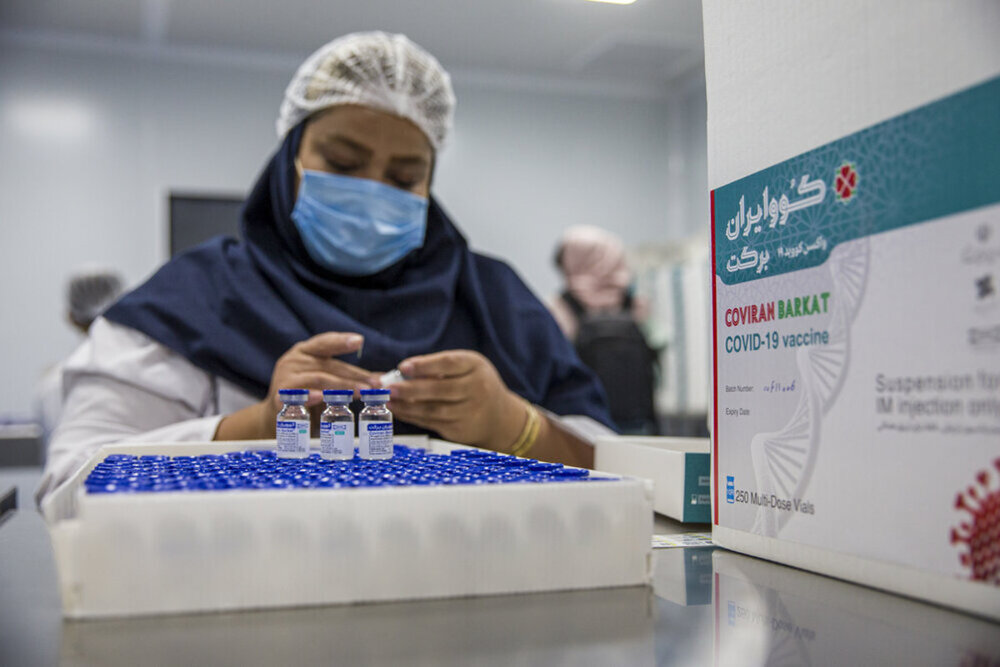20% of homegrown COVID vaccines permitted for export

TEHRAN – The Ministry of Health has issued a license to export 20 percent of the domestically produced coronavirus vaccines, IRNA reported on Tuesday.
Given that the country’s need is met in terms of vaccination, the Ministry of Health approved to export 20 percent of domestically produced vaccines, Kamal Heydari, the deputy health minister, said.
“We intend to use domestic products in the reminder dose and measures have been taken in this regard,” he stated, adding, homegrown vaccines have good immunogenicity and efficacy to be booster doses.
Health Minister Bahram Einollahi has announced on Sunday that from now on no coronavirus vaccines will be imported to the country, emphasizing that the priority is given to domestic products.
Homegrown vaccines
According to the Food and Drug Administration, 14 vaccines are being domestically developed in the country which are in different study phases.
Made by researchers at the Headquarters for Executing the Order of the Imam, COVIRAN BAREKAT was unveiled on December 29, 2020, and received the license for public use on June 14.
It proved effective against Indian strain, according to Hojjat Niki-Maleki, head of the information center of Headquarters for Executing the Order of the Imam.
Developed by the Razi Vaccine and Serum Research Institute, Razi Cov Pars is the second Iranian-made vaccine that started the clinical trial on February 27.
Fakhra vaccine, the third domestically-developed COVID-19 vaccine, was unveiled and started the clinical trial on March 16.
Lately, the Food and Drug Administration issued an emergency use license for two other domestic vaccines of Razi Cov Pars and Fakhra.
The Iranian-Australian Spikogen vaccine and Pastu Covac, developed jointly by the Pasteur Institute of Iran and Cuba's Finlay Vaccine Institute, are other homegrown vaccines, which have received the emergency use license.
Iran is one of the few countries that has all vaccine production platforms, Mohammad Reza Shanehsaz, former head of the Iranian Food and Drug Administration, said in June.
Meanwhile, World Health Organization (WHO) representative to Iran Jaffar Hussain said in September that the Organization was collecting the necessary information for the registration and certification of Iranian-made coronavirus vaccines.
FB/MG
